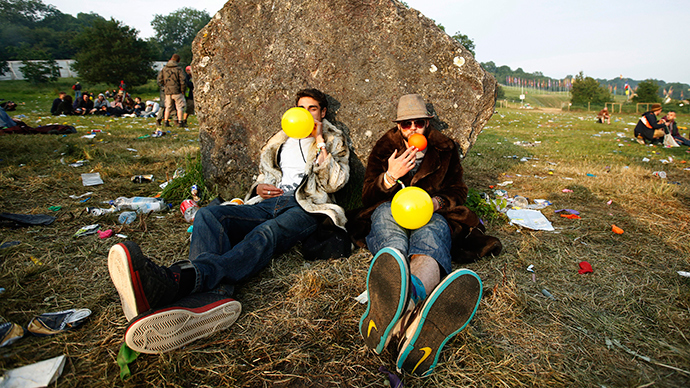Legal highs ban ‘criminalizes’ scientists, will damage medical research

Legislation banning legal highs could have a damaging effect on medical research, leading scientists have warned in an open letter to Home Secretary Theresa May.
Senior researchers from six of the UK’s top scientific institutions said the ban would create a “barrier to important scientific work” as scientists could be “criminalized” for working with the substances.
READ MORE: Sex, drugs & gambling: Students resort to taboo trades to meet living costs
The Royal Society, the Academy of Medical Sciences (AMS), the Royal College of Psychiatrists and others co-signed the letter to May. They argue the wording of the bill poses a “significant risk” to academics who undertake research into addiction and mental illness.
AMS president Sir John Tooke authored the letter, which urged May to consider the effects the bill will have on the scientific community.
The bill is currently being debated in the House of Lords. On Wednesday the house will discuss an amendment put forward by Baroness Meacher which aims to make exemptions for medical research stronger.
READ MORE: Britons taking more MDMA than any other country
The letter follows news that the ban could hit more than 450 shops in the country that sell legal highs.
The Home Office estimates £32 million is generated by the trade annually, with a turnover of £82 million and profits of 40 percent.
The impending ban will cover substances that induce similar effects to illegal drugs. Nitrous oxide, popularly known as laughing gas, is the second most popular recreational drug in the country and it set to be banned under the new laws.
Home Office Minister for Policing Mike Penning said the new law would be an effective way to clamp down on drug users.
“The legislation will apply to both online and offline markets and give police, other law enforcement agencies and local authorities the power to take action where necessary,” he said.
“We will also continue our wider work to ensure internet providers comply with the law and shut down UK-based websites if they are found to be unlawful, as well as working with international partners to tackle the supply globally.”












